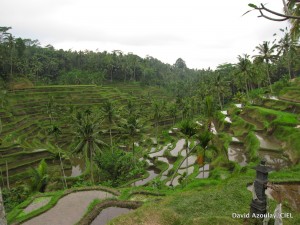In Bonn, CIEL will be advocating for better human rights protections in a number of areas, including the negotiations on forests and climate change (specifically referred to as REDD+). We’ll also be tracking the discussions on mitigation and the Clean Development Mechanism (CDM) – the UN’s carbon offsetting system designed to give developing countries access to cleaner, less polluting technologies. In the CDM arena, we’ll be focusing on the promotion of sustainable solutions rather than “solutions” that will cause collateral harms (like large dams). Stay tuned for a more in-depth discussion of the CDM in a future blog post!
REDD+, in essence, is a way to reduce emissions by protecting forests in developing countries. A particularly important issue that will be discussed in Bonn is how to incentivize the many benefits that forests provide, not just their ability to absorb carbon. Because trees absorb carbon – it’s the earth’s natural way of managing temperature rise – conserving them benefits the climate. However, there are other benefits to protecting forests. For instance, many indigenous peoples and local communities depend on forests to support their livelihoods. These communities have managed forests sustainably for generations, and they have rights to the land and natural resources that must be protected. Protecting forests also provide other environmental benefits such as water and biodiversity conservation. Although it is difficult to quantify these kinds of benefits, it is important to ensure that achieving them is a goal of any REDD+ activity. CIEL will be working to avoid the risk that countries focus only on the carbon benefit of protecting forests; this singleness of vision could lead to the false conclusion that primary forests are interchangeable with monoculture plantations purely because they have a comparable ability to absorb carbon. However, such a replacement would drastically (and negatively) impact the viability of the entire ecosystem, reduce biodiversity, impair the watershed and local communities.
Originally posted on June 4, 2013.

